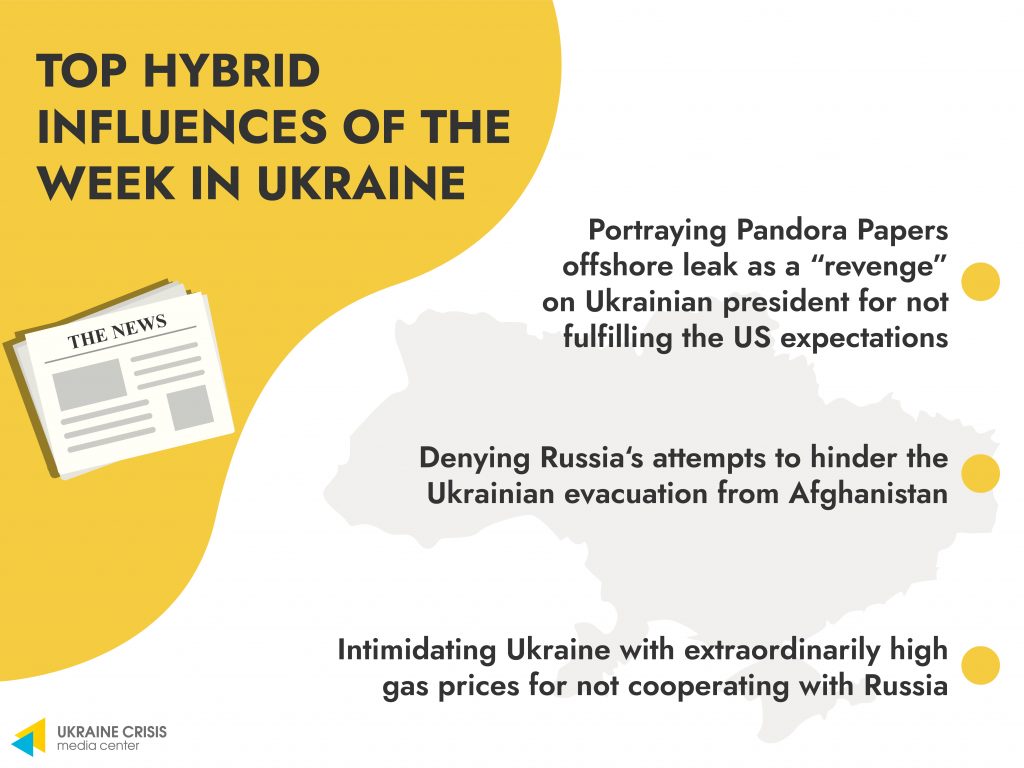This week, the pro-Kremlin forces in Ukraine attempted to exploit the Pandora Papers offshore leak in their disinformation attacks. They portrayed the journalistic investigation involving more than 600 journalists from 150 media outlets in 117 countries as an orchestrated “revenge” on Ukrainian president Zelenskyi for not fulfilling the US expectations. This way, the Kremlin’s proxies once again attempt to undermine Ukraine’s partnership with the US.
Ukraine’s Defence Intelligence reported that the Russian special services had tried to hinder the evacuation of Ukrainians from Afghanistan. They launched an information operation through the Kremlin-controlled media to persuade Ukrainian citizens in Afghanistan as if authorities had abandoned them. Ukrainians were also offered to be evacuated to Russia in exchange for claims that Ukraine had abandoned them.
These attempts to discredit Ukraine’s efforts failed as Ukrainian special forces successfully conducted multiple evacuation operations. The pro-Kremlin media denied the claims of Ukraine’s intelligence and tried to again discredit Ukraine by pushing messages as though Ukrainian authorities do nothing to evacuate the rest of its citizens that remain in Kabul.
The pro-Kremlin forces continue to weaponize the topic of gas by intimidating the population with the prospect of extraordinarily high gas prices. The situation is under control according to the official sources: the prices for domestic consumers will stay the same for the rest of the year, and there are more than enough gas reserves for the heating season. Even though the Kremlin’s policies regarding gas supplies to Europe will also affect Ukraine, the pro-Russian propaganda aims to trigger disproportionate panic among Ukrainians and promote the idea of “cooperating” with Russia as the only solution.

